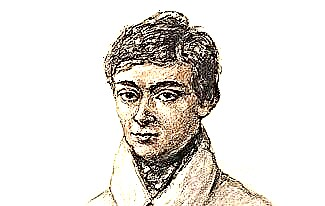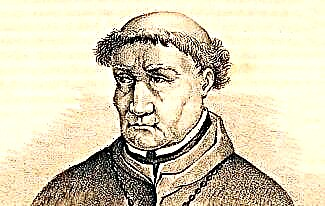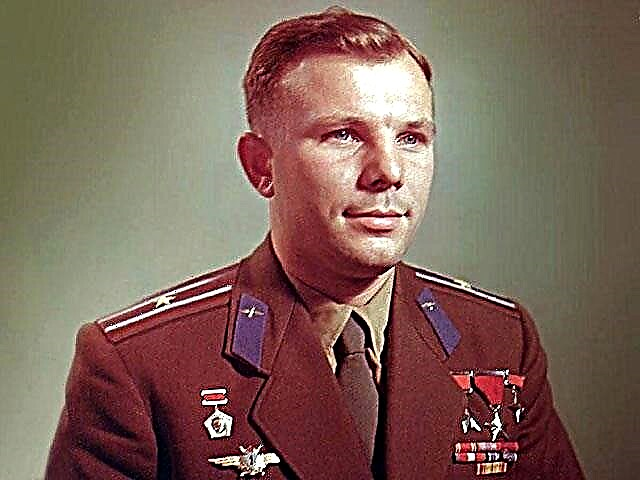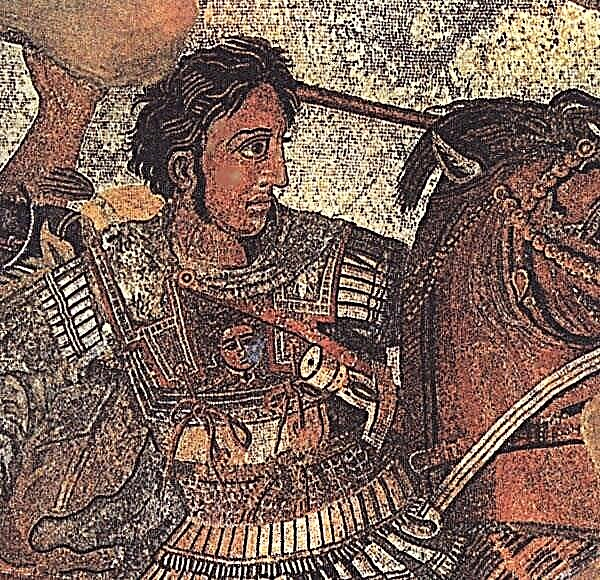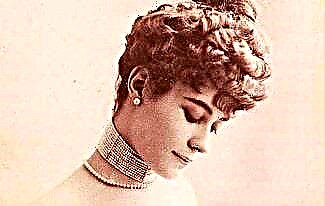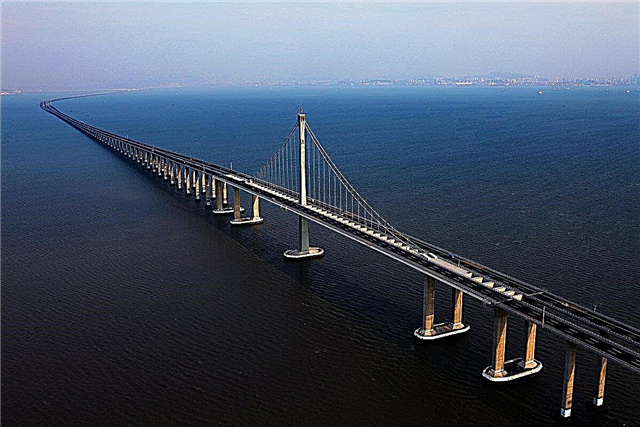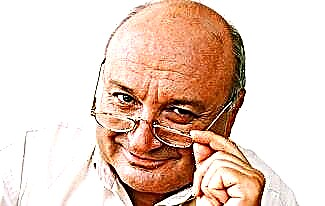Boris Efimovich Nemtsov (1959-2015) - Russian politician and statesman, businessman. Deputy of the Yaroslavl Regional Duma from 2013 to 2015, before his murder. Shot on the night of February 27-28, 2015 in Moscow.
There are many interesting facts in the biography of Nemtsov, which we will tell about in this article.
So, before you is a short biography of Boris Nemtsov.

Biography of Nemtsov
Boris Nemtsov was born on October 9, 1959 in Sochi. He grew up and was brought up in the family of the official Yefim Davydovich and his wife Dina Yakovlevna, who worked as a pediatrician.
In addition to Boris, a girl Yulia was born in the Nemtsov family.
Childhood and youth
Until the age of 8, Boris lived in Sochi, after which he moved to Gorky (now Nizhny Novgorod) with his mother and sister.
While studying at school, Nemtsov received high marks in all disciplines, and therefore graduated with a gold medal.

After that, Boris continued to study at the local university at the Department of Radiophysics. He was still one of the best students, as a result of which he graduated from the university with honors.
After graduation, Nemtsov worked for some time at a research institute. He worked on issues of hydrodynamics, plasma physics and acoustics.
An interesting fact is that during that period of his biography, Boris tried to write poetry and stories, and also gave English and mathematics lessons as a tutor.
At the age of 26, the guy received a PhD in Physics and Mathematics. By that time, he had published over 60 scientific papers.
In 1988, Nemtsov joined the activists who demanded to stop the construction of the Gorky nuclear power plant because it polluted the environment.
Under pressure from activists, the local authorities agreed to stop the construction of the station. It was during that period of his biography that Boris became interested in politics, relegating science to the background.
Political career
In 1989, Nemtsov was nominated as a candidate for People's Deputies of the USSR, but the representatives of the election commission did not register him. It is worth noting that he was never a member of the Communist Party.
The next year the young politician becomes a people's deputy. Later he was a member of such political forces as the "Reform Coalition" and "Center Left - Cooperation".
At that time, Boris became close to Yeltsin, who was interested in his opinion on the further development of Russia. Later, he was a member of such blocs as Smena, Non-Party Deputies, and the Russian Union.
In 1991, Nemtsov became Yeltsin's confidant on the eve of the presidential elections. During the famous August putsch, he was among those who defended the White House.

At the end of the same year, Boris Nemtsov was entrusted with heading the administration of the Nizhny Novgorod region. During this time, he managed to show himself as a professional business executive and organizer.
The man conducted a number of effective programs, including "People's Telephone", "Gasification of villages", "ZERNO" and "Meter by meter." The last project dealt with issues related to the provision of housing for military personnel.
In interviews, Nemtsov often criticized the authorities for the weak implementation of reforms. Soon, he invited Grigory Yavlinsky, who was a professional economist, to his headquarters.
In 1992, Boris, together with Gregory, developed a large-scale program of regional reforms.

The next year, residents of the Nizhny Novgorod region elect Nemtsov to the Federation Council of the Federal Assembly of the Russian Federation, and after 2 months he becomes a member of the Federation Council committee on currency and credit regulation.
In 1995, Boris Efimovich again holds the post of governor of the Nizhny Novgorod region. At that time, he had a reputation as a promising reformer, and also had a strong character and charisma.
Soon, Nemtsov organized a collection of signatures in his region for the withdrawal of troops from Chechnya, which were then handed over to the president.
In 1997, Boris Nemtsov became the first deputy prime minister in the government of Viktor Chernomyrdin. He continued to develop new effective programs aimed at the development of the state.
When the Cabinet of Ministers was headed by Sergei Kiriyenko, he left in his place Nemtsov, who was then dealing with financial issues. However, after the crisis that began in mid-1998, Boris resigned.
Opposition
Occupying the post of deputy chairman of the government, Nemtsov was remembered for his proposal to transfer all officials to domestic vehicles.
At that time, the man founded the "Young Russia" society. Later, he became a deputy from the Union of Right Forces party, after which he was elected deputy chairman of the parliament.
At the end of 2003, the "Union of Right Forces" did not pass to the Duma of the 4th convocation, so Boris Nemtsov left his post due to an election failure.
The following year, the politician supported the supporters of the so-called "Orange Revolution" in Ukraine. He often spoke to protesters on the Maidan in Kiev, praising them for their willingness to defend their rights and democracy.

In his speeches, Nemtsov often spoke of his own desire to hold similar actions in the Russian Federation, severely criticizing the Russian government.
When Viktor Yushchenko became President of Ukraine, he discussed with the Russian oppositionist some issues related to the country's further development.
In 2007, Boris Efimovich took part in the presidential elections, but his candidacy was supported by less than 1% of his compatriots. Soon, he presented his book entitled "Confessions of a Rebel."
In 2008, Nemtsov and his like-minded people set up the Solidarity opposition bloc. It is worth noting that Garry Kasparov was one of the leaders of the party.
The following year, Boris ran for mayor of Sochi, but lost, taking 2nd place.
In 2010, the politician participates in the organization of a new opposition force "For Russia without arbitrariness and corruption." On its basis, the "Party of People's Freedom" (PARNAS) was formed, which in 2011 the election commission refused to register.
On December 31, 2010, Nemtsov and his colleague Ilya Yashin were arrested in Triumfalnaya Square after speaking at a rally. The men were charged with disorderly conduct and sent them to jail for 15 days.
In recent years, Boris Efimovich has been repeatedly accused of various crimes. He publicly declared his sympathy for Euromaidan, continuing to criticize Vladimir Putin and his entourage.
Personal life
Nemtsov's wife was Raisa Akhmetovna, with whom he legalized relations as a student.
In this marriage, a girl named Zhanna was born, who in the future will also connect her life with politics. It is worth noting that Boris and Zhanna began to live separately from the 90s, while remaining husband and wife.

Boris also has children from journalist Ekaterina Odintsova: son - Anton and daughter - Dina.
In 2004, Nemtsov was in a relationship with his secretary Irina Koroleva, as a result of which the girl became pregnant and gave birth to a girl, Sofia.
After that, the politician began a stormy romance with Anastasia Ogneva, which lasted for 3 years.
Boris's last beloved was the Ukrainian model Anna Duritskaya.
In 2017, two years after the murder of the official, the Zamoskvoretsky Court of Moscow recognized the boy, Yekaterina Iftodi, Boris, born in 2014, as the son of Boris Nemtsov.
Murder of Nemtsov
Nemtsov was shot to death on the night of February 27-28, 2015 in the center of Moscow on the Bolshoy Moskvoretsky Bridge, while walking with Anna Duritskaya.
The murderers fled in a white car, as evidenced by video recordings.
Boris Efimovich was killed a day before the opposition march. As a result, the Spring March was the last project of the politician. Vladimir Putin called the murder "contract and provocative", and also ordered to investigate the case and find the criminals.

The death of the famous oppositionist became a real sensation all over the world. Many world leaders have called on the Russian president to immediately find and punish the killers.
Many of Nemtsov's compatriots were shocked by his tragic death. Ksenia Sobchak expressed condolences to the loved ones of the deceased, calling him an honest and bright person who fights for his ideals.
Murder investigation
In 2016, the investigation team announced the completion of the investigation process. Experts said the alleged killers were offered RUB 15 million for the official's murder.
It is worth noting that 5 people were accused of murdering Nemtsov: Shadid Gubashev, Temirlan Eskerkhanov, Zaur Dadaev, Anzor Gubashev and Khamzat Bakhaev.
The initiator of the reprisal was named by the ex-officer of the Chechen battalion "Sever" Ruslan Mukhudinov. According to the detectives, it was Mukhudinov who ordered the murder of Boris Nemtsov, as a result of which he was put on the international wanted list.
In early 2016, investigators announced that 70 rigorous forensic examinations confirmed the involvement of all suspects in the murder.
Nemtsov Photos








